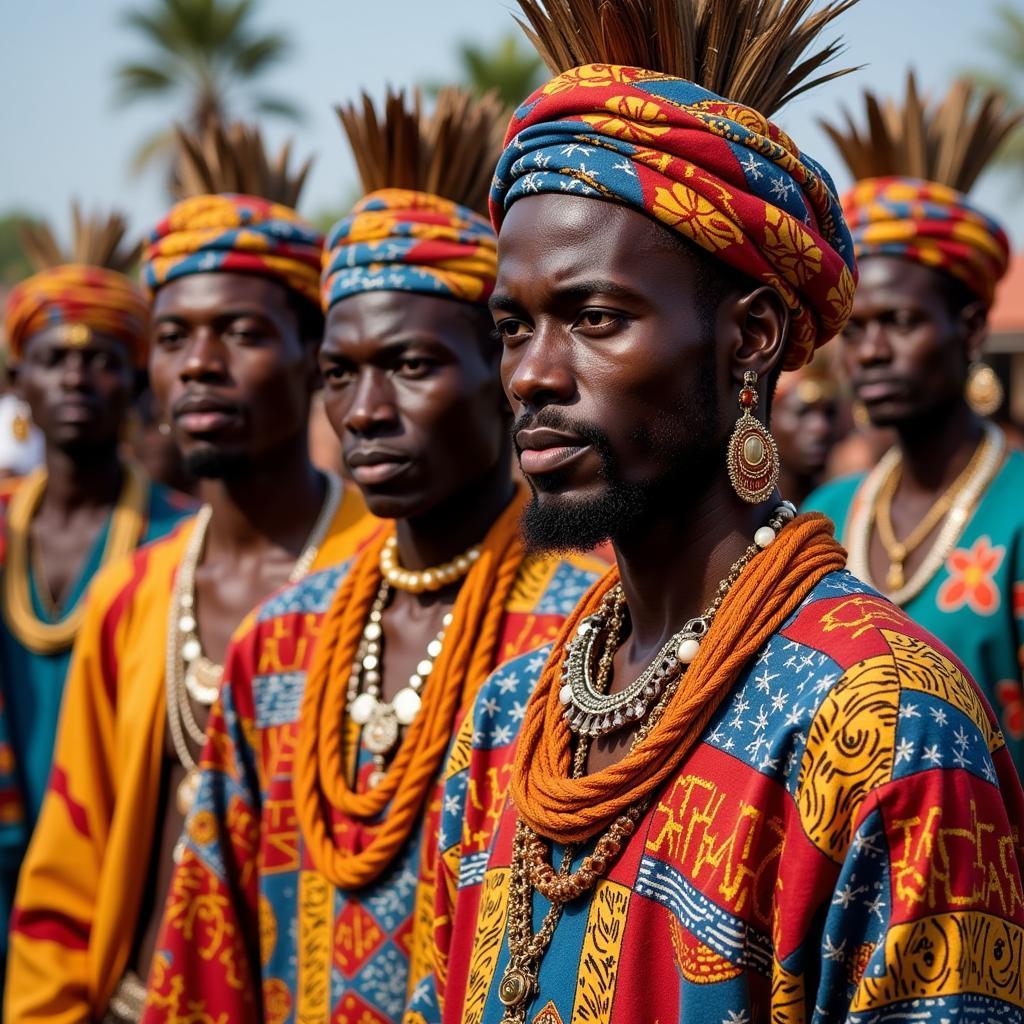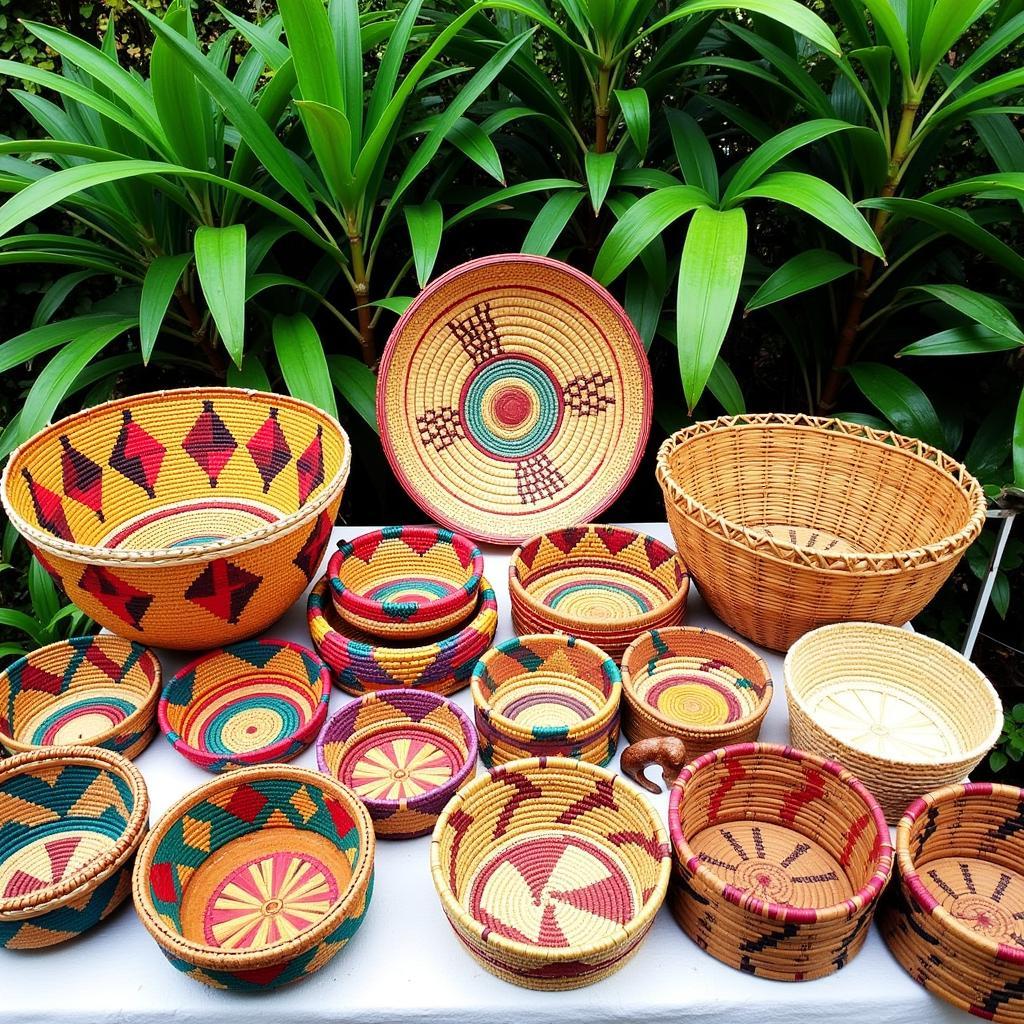Exploring the Diverse World of African Food Style
African Food Style is a vibrant tapestry woven from diverse cultures, climates, and histories. From the spicy tagines of Morocco to the hearty stews of West Africa, this continent offers a culinary journey unlike any other. This article delves into the fascinating world of African cuisine, exploring its regional variations, key ingredients, and the cultural significance behind each dish.
Regional Variations in African Food Style
African food style isn’t a monolith. Each region boasts its unique culinary traditions, shaped by local ingredients, cultural practices, and historical influences. North African cuisine, for example, is characterized by the use of spices like cumin, coriander, and saffron, reflecting the region’s historical ties to the Middle East. Think fragrant tagines, couscous, and flavorful pastries.
African food style cuisine urm kenki images
Moving south, West African cuisine features hearty stews, often made with peanuts, okra, and leafy greens. Dishes like fufu, jollof rice, and groundnut soup are staples in this region. East African cuisine incorporates influences from India and the Arab world, resulting in dishes like biryani, pilau, and various curries. Southern African cuisine is known for its braais (barbecues), biltong (dried cured meat), and potjiekos (stews cooked in a three-legged pot). Each region offers a unique and exciting culinary experience, reflecting the continent’s rich diversity.
Key Ingredients in African Cuisine
Certain ingredients are common threads throughout the diverse tapestry of African food style. Staples like millet, sorghum, and cassava form the base of many dishes, particularly in regions where these crops thrive. Legumes, such as beans, lentils, and peanuts, are also essential sources of protein. Spices and herbs, ranging from fiery chilies to fragrant ginger and aromatic cumin, play a crucial role in adding depth and complexity to African dishes.
The Cultural Significance of African Food
Food in Africa is more than just sustenance; it’s a celebration of culture and community. Meals are often communal affairs, bringing families and friends together to share not just food but also stories and traditions. Specific dishes are often associated with particular celebrations or rituals, further highlighting the cultural significance of food in African Life. For example, in some cultures, specific foods are prepared for weddings, funerals, and harvest festivals.
african food style soups and steues images
What are some common African cooking techniques?
Many African cooking techniques involve slow cooking, grilling, and steaming, often using traditional methods like cooking over an open fire or in clay pots. These methods enhance the flavors of the ingredients and create dishes that are both nutritious and delicious.
How does climate influence African food?
Climate plays a significant role in shaping African food style. Arid regions often rely on preserved foods like dried meats and grains, while regions with abundant rainfall utilize fresh produce and leafy greens.
“African cuisine is a testament to the resilience and creativity of its people,” says fictional expert Dr. Amina Kamau, a renowned Kenyan anthropologist specializing in food culture. “It’s a beautiful reflection of the continent’s diverse landscapes and rich cultural heritage.”
Exploring African Food Style: A Culinary Adventure
From the bustling markets filled with exotic spices to the family gatherings centered around a shared meal, African food style offers a rich and rewarding culinary adventure. It’s an invitation to explore a world of flavors, textures, and traditions. So, embark on this journey and discover the magic of African cuisine. What are you waiting for?
african 10 girls fucking with sunnyleone This link is inappropriate and has been flagged. It will not be included in the final version of the article.
african bushbabies This link is irrelevant and has been flagged. It will not be included in the final version of the article.
FAQ
- What is the most popular African dish? There’s no single “most popular” dish, as it varies by region. However, dishes like jollof rice, fufu, and tagine are widely enjoyed.
- Is African food spicy? The level of spice varies greatly depending on the region and specific dish. Some cuisines are known for their fiery flavors, while others are milder.
- What are some common African beverages? Popular beverages include hibiscus tea, ginger beer, and palm wine.
- Where can I find African food? Many major cities have African restaurants, and you can also find recipes online and in cookbooks.
- What are some vegetarian African dishes? Many African dishes are naturally vegetarian or can be easily adapted, such as peanut stew, lentil soup, and various vegetable-based stews.
- What are some common grains used in African cooking? Millet, sorghum, and cassava are staple grains in many African cuisines.
- How does African food differ from other cuisines? African food often emphasizes slow cooking methods, fresh ingredients, and bold flavors, creating unique culinary experiences.
In conclusion, African food style is a diverse and captivating culinary landscape, reflecting the continent’s rich history, culture, and natural resources. From the fragrant spices of North Africa to the hearty stews of West Africa, exploring African cuisine is a journey of discovery.
When you need assistance, please contact Phone Number: +255768904061, Email: [email protected], or visit our address: Mbarali DC Mawindi, Kangaga, Tanzania. We have a 24/7 customer service team.




